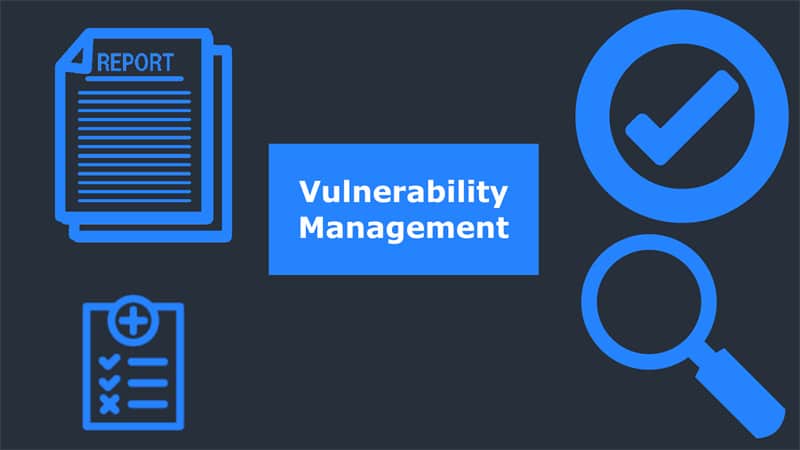
What measures is your organization currently taking to safeguard against cyber threats? How do you ensure comprehensive protection of your digital assets? That's when managed security comes into play.
Managed security involves outsourcing security responsibilities to third-party providers for services like threat detection, incident response, and compliance management. It enhances security posture cost-effectively, providing expertise and resources against cyber threats without extensive in-house infrastructure.
Managed security is like having your own security center on-demand, which is for anyone needing a dependable process for prioritizing and managing security alerts. Because threats come in different forms, like malware, ransomware, and phishing, managed security providers have a triage team that monitors and responds to alerts.
Let’s explore the essential layers of managed security below.
Firewall Management

Firewall management is essential for network security, covering configuration, monitoring, and maintenance to defend against unauthorized access and threats. This involves setting up rules and policies to control traffic flow in alignment with security requirements.
Continuous observation of firewall activity is necessary to detect anomalies or unauthorized access attempts. In response to security incidents, swift action is taken, including blocking malicious activity and implementing remediation measures.
Ensuring adherence to industry regulations and standards by maintaining firewall configurations in accordance with guidelines is also crucial. Outsourcing firewall management to experienced providers enhances security, mitigates risks, and allows organizations to focus on core objectives.
Intrusion Detection and Prevention Systems (IDPS)
Intrusion detection and prevention systems (IDPS) are vital for detecting and thwarting cyber threats in real-time. Managed security services integrate IDPS solutions, analyzing network traffic to identify suspicious activities like unauthorized access attempts and abnormal data transfers.
Managed security providers configure and manage IDPSs to optimize performance and minimize false positives. By continuously monitoring and fine-tuning IDPSs, they enhance accuracy and effectiveness, allowing organizations to focus on addressing genuine security threats.
IDPS solutions also aid post-incident analysis and forensic investigation, facilitating the identification of attack vectors and development of mitigation strategies.
Endpoint Protection
Endpoint protection is crucial in cybersecurity, particularly for devices such as desktops, laptops, and mobile devices, which are prime targets for cyber-attacks. Managed security services provide robust solutions to defend these endpoints against malware, ransomware, and other threats.
This protection involves deploying and managing antivirus software, conducting regular vulnerability assessments, and enforcing security policies. Managed security providers leverage advanced endpoint detection and response (EDR) technologies to detect and mitigate threats in real-time, ensuring comprehensive endpoint security.
EDR systems take immediate action to mitigate the risk when a potential threat is detected. This may involve isolating the affected endpoint from the network, quarantining suspicious files, or terminating malicious processes. Additionally, EDR solutions provide real-time alerts and comprehensive visibility into endpoint activity, enabling security teams to respond swiftly and decisively to emerging threats.
Security Information and Event Management (SIEM)
SIEM solutions centralize and analyze security data from various sources like firewalls, IDPSs, and endpoint protection systems. Managed security providers use SIEM technologies to correlate events, detect anomalies, and prioritize alerts based on severity.
SIEM enables proactive threat hunting and incident response, helping organizations identify and mitigate security incidents promptly.
Vulnerability Management

Vulnerability management is integral to maintaining strong cybersecurity within organizations. Managed security services play a key role by conducting vulnerability scans across systems, applications, and network devices to identify potential weaknesses.
These vulnerabilities are then assessed for risk, with remediation efforts prioritized based on severity to minimize the likelihood of exploitation.
Managed security providers work closely with organizations to implement effective strategies tailored to their specific needs, including applying patches, configuring security settings, and deploying additional controls as necessary.
Continuous monitoring ensures that new vulnerabilities are promptly identified and addressed, helping organizations proactively manage risks and safeguard against potential threats, especially those still using end-of-life software.
Security Awareness Training
Security awareness training educates employees about cybersecurity best practices and raises their awareness of common threats such as phishing, social engineering, malware, and insider threats.
Phishing, for example, involves fraudulent attempts to deceive people into divulging sensitive information, including login credentials or financial data. Through security awareness training, employees learn to recognize the signs of phishing emails or messages, including suspicious sender addresses, grammatical errors, and requests for sensitive information.
By understanding how phishing attacks work and the potential consequences of falling victim to them, employees are better equipped to exercise caution and skepticism when encountering such threats.
Conclusion
Managed security services offer a multi-layered approach to cybersecurity, combining technology, expertise, and proactive threat intelligence to protect organizations from cyber threats. By outsourcing security responsibilities to third-party providers, businesses can enhance their security posture cost-effectively while focusing on their core operations.
From firewall management to endpoint protection and beyond, managed security services provide comprehensive protection against today's evolving cyber threats.










